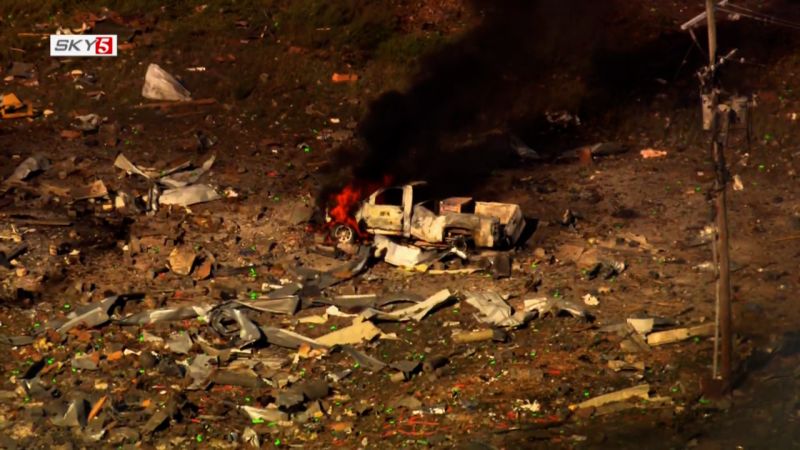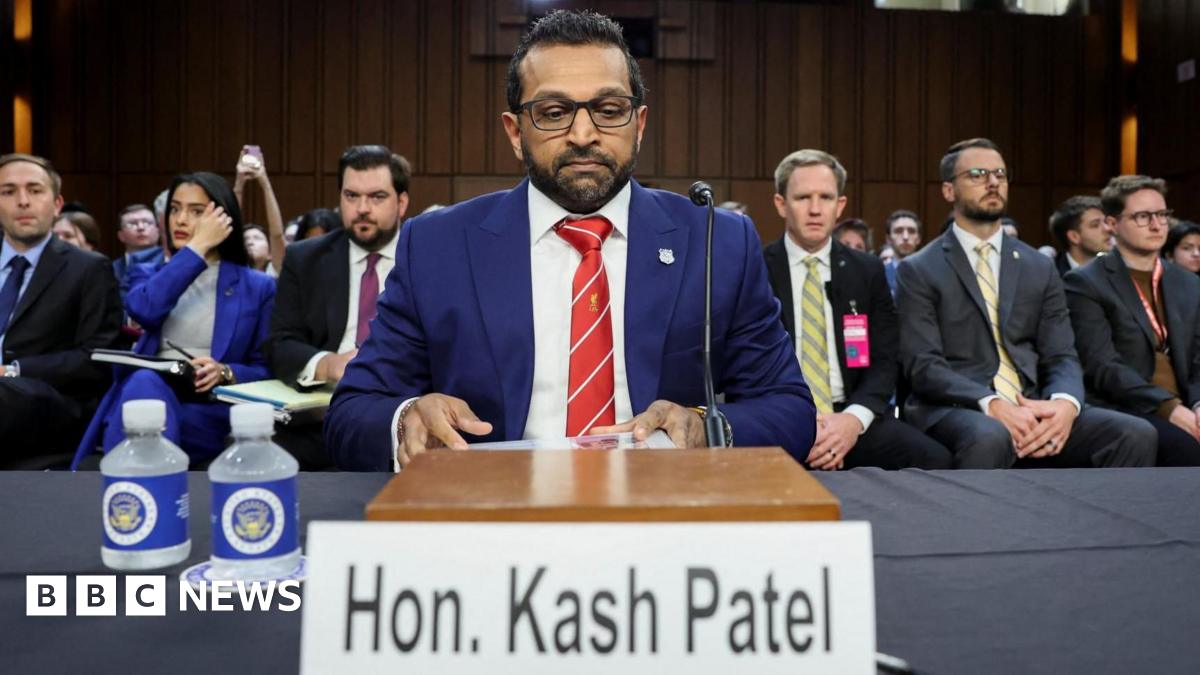16 Dead in Tennessee Plant Explosion: Investigation Underway in Hickman County

Scene of Tragedy in Tennessee
As investigators move with caution through the smoldering remains of the Accurate Energetic Systems plant in Hickman County, Tennessee, families are grappling with the heartbreaking news that 16 loved ones perished in a catastrophic explosion. The blast, which occurred early Friday morning, sent shockwaves through the small, tight-knit community of McEwen, just west of Nashville. Witnesses described the explosion as unlike any they had heard before, shaking homes for miles and leaving residents in disbelief. Emergency crews faced ongoing hazards, including secondary explosions, as they worked to secure the site and recover victims. The Humphreys County Sheriff confirmed that no survivors were found after an extensive search, and authorities have now officially notified all affected families, marking a grim milestone in the aftermath.
Community and Investigation Response
In response to the disaster, state and federal agencies swiftly mobilized, establishing a family assistance center and activating emergency operations. The plant, which processes—but does not manufacture—ammunition and explosives, remains under scrutiny as the ATF, FBI, and other agencies pursue the cause of the blast. Meanwhile, the community has rallied, offering support to grieving families and first responders. With the investigation ongoing and the site still unstable, officials urge the public to avoid the area, allowing experts to safely gather evidence and piece together the events that led to this devastating loss. The focus now turns to healing and accountability as Tennessee mourns its deadliest industrial accident in decades.
About the Organizations Mentioned
Accurate Energetic Systems
**Accurate Energetic Systems (AES)** is a leading manufacturer of energetic products, serving the military, aerospace, and commercial sectors. Founded in 1980, AES is headquartered in McEwen, Tennessee, with a significant facility spanning 1,200 acres in nearby Bucksnort[1][2]. The company specializes in developing and producing a wide range of explosives, including bulk Mil-Spec and specialty formulations for defense, oil and gas exploration, mining, and demolition applications[1][2]. **History and Achievements**: Over the years, AES has expanded its capabilities through strategic acquisitions, research and development investments, and capital expenditures. This growth has enabled the company to diversify its product portfolio and enhance its services to meet the evolving needs of its clients[1]. AES has been involved in notable projects, including the Space Shuttle program, and has established itself as a trusted supplier of high-quality explosives for various industries[2]. **Current Status**: AES operates as an independently owned small business with approximately 135 employees, generating a revenue of $22.3 million[2]. The company maintains an ISO 9001:2015 certified quality management system, ensuring rigorous quality, safety, and security standards in all operations[1]. Despite past incidents, such as an explosion in 2014, AES continues to prioritize safety and innovation in its manufacturing processes[5]. **Notable Aspects**: AES is recognized for its commitment to customer satisfaction and innovation. The company offers tailored solutions for its clients across different sectors, including aerospace and defense, where it provides advanced energetic materials and technologies[7]. In the mining and blasting industry, AES is valued for its precision and reliability in supplying high-quality explosives and expert blast design services[3]. With a strong focus on quality and safety, AES remains a key player in the energetic materials sector.
ATF
The Bureau of Alcohol, Tobacco, Firearms and Explosives (ATF) is a pivotal U.S. federal law enforcement agency under the Department of Justice, tasked with safeguarding communities from violent crime, terrorism, and illegal trafficking of firearms, explosives, alcohol, and tobacco. Originally rooted in enforcing tax laws dating back to the 1790s, the ATF evolved from its early focus on alcohol taxation—famously confronting the Whiskey Rebellion—to become a modern regulatory and investigative force. In 2003, its mandate expanded to include explosives, reflecting its growing role in national security. ATF’s core responsibilities include enforcing the Gun Control Act and the National Firearms Act, regulating interstate commerce in firearms and explosives, and investigating arson, bombings, and acts of terrorism. The agency operates a unique fire research laboratory in Maryland, enabling advanced forensic analysis of arson cases. It also partners with state and local law enforcement through initiatives like Project Safe Neighborhoods, leveraging technology and data to disrupt criminal networks and enhance public safety. A notable achievement was the expansion of explosives regulations under the Safe Explosives Act of 2002, which mandated background checks and federal permits for explosives handling. However, ATF has faced criticism, including controversies over high-profile incidents like Ruby Ridge and Waco, and legal battles over regulations, such as its 2009 loss in a case involving amateur rocketry fuels. Today, ATF employs over 5,000 people with a budget nearing $1.5 billion, maintaining a critical presence in both regulatory oversight and criminal investigations. Its work directly impacts industries ranging from firearms manufacturing to alcohol distribution, making it a key player in the intersection of business, technology, and public safety. Despite ongoing debates about its authority and funding, ATF remains central to America’s efforts to combat violent crime and ensure responsible commerce in regulated goods.
FBI
The Federal Bureau of Investigation (FBI) is a premier law enforcement agency in the United States, renowned for its role in protecting the nation from domestic and international threats. Founded on July 26, 1908, as the Bureau of Investigation, it was initially tasked with addressing land fraud and corporate malfeasance under President Theodore Roosevelt[1][2]. Over time, its mandate expanded significantly, particularly with the passage of the Mann Act in 1910, which allowed federal jurisdiction over certain moral offenses[1][4]. ### History and Evolution The FBI underwent significant transformation under J. Edgar Hoover, who became its director in 1924. Hoover implemented strict hiring standards and enhanced operational capabilities, transforming the agency into a robust investigative force[1][4]. The FBI's name was officially changed to the Federal Bureau of Investigation in 1935[5][6]. Throughout its history, the FBI has faced challenges, including concerns about potential abuses of power, but it has consistently demonstrated its value in national security and law enforcement[3][4]. ### Key Achievements The FBI has been instrumental in combating various crimes, including white-collar offenses, civil rights violations, and national security threats. Notable achievements include its role in enforcing the Espionage Act during World War I and its investigations into organized crime throughout the 20th century[2][4]. ### Current Status Today, the FBI is a sophisticated agency with over 37,100 employees, including special agents and professionals in various fields such as intelligence analysis and cybersecurity[5]. It operates in 55 field offices across the U.S. and has an international presence in 81 nations[5]. The FBI continues to evolve, addressing emerging threats like cybercrime and terrorism while maintaining its commitment to justice and integrity. ### Notable Aspects The FBI is known for its rigorous training programs at the FBI Academy in Quantico, Virginia, and its advanced forensic capabilities at the FBI Laboratory. Its work in business and technology includes
Humphreys County Sheriff
The **Humphreys County Sheriff's Office (HCSO)**, established in 1809, has over two centuries of continuous operation dedicated to ensuring the safety and security of its estimated 19,000 residents and visitors in Humphreys County, Tennessee[1][3][6]. Its core mission centers on community safety, guided by values such as commitment, compassion, courage, communication, and faith[3]. HCSO’s responsibilities encompass law enforcement, jail and correctional operations, criminal investigations, and community engagement. The office employs a range of personnel—from the sheriff to correctional officers—who collectively work to maintain public safety and uphold the law throughout the county[1]. Sheriff Chris Davis, elected in 2006 and a veteran of law enforcement since 1986, leads the office. His background includes roles in dispatch, patrol, narcotics detection, SWAT, and drug task forces, reflecting a deep commitment to combating crime and drug enforcement[4]. The office actively recruits qualified individuals who meet stringent requirements, including citizenship, education, background checks, and physical and psychological fitness, ensuring a professional and capable workforce[2]. Notably, HCSO has embraced technology with the launch of a mobile app to enhance communication and accessibility for the community[3]. Historically, the sheriff’s office has faced challenges and sacrifices, honoring officers who have died in the line of duty, including deaths by gunfire and heart attack, underscoring the risks inherent in law enforcement[5]. Currently, the Humphreys County Sheriff's Office remains a vital institution in the county, balancing tradition with modernization to protect and serve effectively. Its blend of historical legacy, community-focused values, experienced leadership, and technological adoption positions it as a noteworthy example of a rural law enforcement agency adapting to contemporary needs[1][3][4].
















